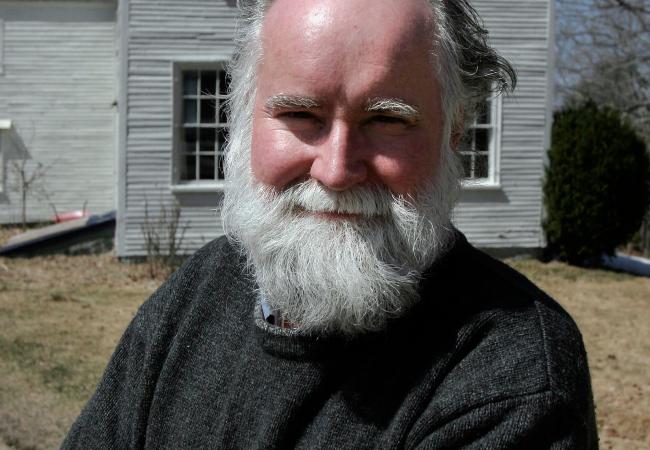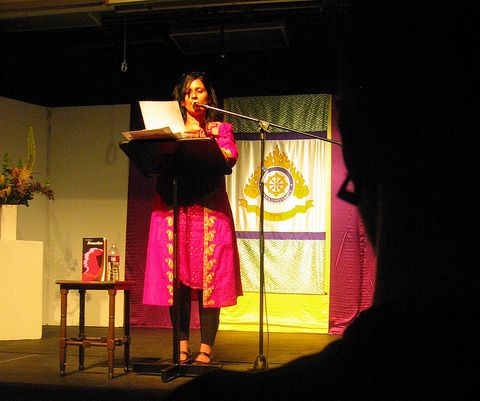It looks like Open City is closing its pages—a real shame. Issue 30 will be their last and it’s only $10.
Nicholson Baker Interview
 Have you checked out the Writers at Cornell interview series? The latest installment is twenty-five minutes of Nicholson Baker answering to J. Robert Lennon’s questions about formal experimentation, John Updike, libraries, Human Smoke, and so on. Also worth your time (all of these interviews are downloadable MP3’s): Lydia Davis, Julia Alvarez, Terrance Hayes, Patrick Somerville, Alison Bechdel, George Saunders, and Junot Diaz.
Have you checked out the Writers at Cornell interview series? The latest installment is twenty-five minutes of Nicholson Baker answering to J. Robert Lennon’s questions about formal experimentation, John Updike, libraries, Human Smoke, and so on. Also worth your time (all of these interviews are downloadable MP3’s): Lydia Davis, Julia Alvarez, Terrance Hayes, Patrick Somerville, Alison Bechdel, George Saunders, and Junot Diaz.
What is Experimental Literature? {Five Questions: Bhanu Kapil}

Bhanu Kapil teaches in The Jack Kerouac School of Disembodied Poetics at Naropa University and at God(d)ard College. She has a blog with a loyal following in Croatia, Mongolia, and Pakistan: “Was Jack Kerouac a Punjabi? [A Day in the Life of a Naropa University Writing Professor].” She has written four books: The Vertical Interrogation of Strangers (Kelsey Street Press), Incubation: a space for monsters (Leon Works), humanimal [a project for future children] (Kelsey Street Press), and Schizophrene (forthcoming, Nightboat.)
Read Away Your Tuesday
Nine short stories (from Kvashay-Boyle, Kwon, Mikesch, Lacher, Campbell, Gay, Traverse, Kesey, and Danticat), an interview with Harry Mathews, and an e-chapbook of poems by Letitia Trent. Here they are:
 1. “Saint Chola,” by K. Kvashay-Boyle.
1. “Saint Chola,” by K. Kvashay-Boyle.
An excerpt:
Skater. Hesher. Tagger.Lesbo-Slut. Wanna-be. Dweeb.Fag. Prep. What-up.Nerdy. Trendy. Freaky. In a few weeks it’ll be solid like cement, but right now nobody knows yet. You might be anything. And here’s an example: meet Mohammadee Sawy.
2. “Superhero,” by Reese Okyong Kwon.
An excerpt:

When she was very young, her mother had explained her name to her. “You were named after one of the youngest saints,” her mother told her as she brushed her hair. “A martyr. She believed in God, but her father was a strict Roman nobleman and forbade her from praying under pain of death. When she persisted, her father had her whipped until she died. She was twelve or so.
Silver Sparrow by Tayari Jones
 Silver Sparrow, by Tayari Jones, is a novel where you know, from the first page, what the major tensions of the narrative are. You also get a sense of how the story will end. This is not to suggest that this novel is without its surprises or complexities; you will find both in this book. Nonetheless, Silver Sparrow is a book where how the writer leads the reader to an inevitable ending matters most. Normally, this approach of revealing so much of what is at stake in the early going might seem like a prescription for failure but such is not the case in what is a remarkable novel. Silver Sparrow is thoroughly engaging and although there is so much intense emotion driving the story forward, that emotion is expertly controlled, never becoming indulgent or melodramatic. We all come to reading for different reasons. I mostly read to be moved and engaged; with this book I very much was. I haven’t been able to stop reading this book since I got my hands on a copy.
Silver Sparrow, by Tayari Jones, is a novel where you know, from the first page, what the major tensions of the narrative are. You also get a sense of how the story will end. This is not to suggest that this novel is without its surprises or complexities; you will find both in this book. Nonetheless, Silver Sparrow is a book where how the writer leads the reader to an inevitable ending matters most. Normally, this approach of revealing so much of what is at stake in the early going might seem like a prescription for failure but such is not the case in what is a remarkable novel. Silver Sparrow is thoroughly engaging and although there is so much intense emotion driving the story forward, that emotion is expertly controlled, never becoming indulgent or melodramatic. We all come to reading for different reasons. I mostly read to be moved and engaged; with this book I very much was. I haven’t been able to stop reading this book since I got my hands on a copy.
The first chapter is entitled, “The Secret,” and that early revelation sets the tone. If there’s a secret, there’s something worth hiding and someone who does not know what is being hidden and there’s likely to be trouble. If there’s a secret, the truth is, eventually, going to come to light. That’s a lot of what this novel is about—the narrative slowly, carefuly bringing to light a truth many people are complicit in keeping hidden and what that deception ends up costing every one involved.
March 1st, 2011 / 11:30 am
Great Sheentences: “I don’t have burnout my gearbox. I just go.” and “Everything after but is dial tone.” Joyce and Beckett, respectively. And Jean Cocteau said this: “It is excruciating to be an unbeliever with a spirit that is deeply religious.” He sleeps with a good mask, behind the click. And Mike Meginnis made something huge, ASCII, and goodly terrifying looking: Angband, or His 55 Desires.

